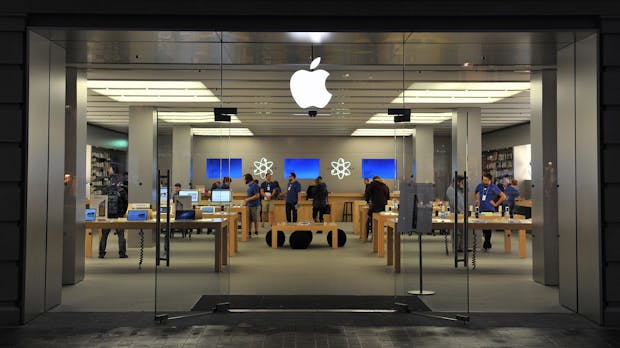Apple giveth and Apple taketh away

Apple giveth and Apple taketh away
Microsoft’s recent surge may have pushed Apple down a notch to being only the world’s second most valuable company. but any move it makes has a huge impact on the entire tech ecosystem. for example, when it ditched the headphone jack on iPhones, users of many other brands saw their choices disappear alongside. lately, its move to swap Intel processors in favour of in-house ones for its MacBook series has given the CEO of the world’s largest chip-supplier cause for some serious introspection.
whatever Apple does, the world watches. a few months ago, it overcame a string of legal challenges to make changes to its iOS operating system which would stop the world from watching every move its users made. this resulted in many big tech companies being unable to offer “personalised” services, specifically ads — bread and butter for some of the largest companies in the world. the impact, however, has not been as simple as just a more-or-less uniform drop in advertising revenues across the board. in fact, some have actually benefited from these changes.
this has been underlined by the recent quarterly earnings reports of many of these ad-giants.
the tomorrow war
as you probably know by now, tech companies use certain pieces of code known as trackers (or cookies, if you prefer the less alarming-sounding version of their name) to monitor a lot of user activities. they can tell which websites you’ve visited, what searches you’ve made, even which apps you use, and more.
for a long time, they managed to fly by promising you ads that actually meet your interests, anonymising the data so it cannot directly be linked to you by a third party, and burying the consent for it in impossibly long legal forms. then came scrutiny from European authorities and the General Data Protection Regulation (GDPR) which made changes to how consent was to be obtained for trackers, and how the collected data was to be stored and processed.
regulators found an unlikely ally in Apple when it decided to make a rather simple change to iOS: making it mandatory for apps and websites to get the express consent of users to track them.
most importantly, it made the choice simple: do you want to let X app track you or not? given the choice, a whopping 96% of users chose not to be tracked.
the losers
personalised data is important to ad providers. it helps it identify the specific interests of its users and group them into audiences that are more valuable to advertisers. if Facebook (now Meta) or Google knows that you have been looking at a lot of Smart TVs lately, it will start showing you more ads for the same, making it more likely that your purchase will be influenced by them. at the opposite end, Smart TV advertisers will be charged higher to show their ads to you. if this personalisation is taken out of the picture, advertising on these becomes a ‘spray and pray’ game. advertisers will look to reach as many people as possible for as cheap as possible, and many will give up altogether.
Snap underestimated the impact of the privacy changes, saw its earnings slide, and was punished with a 24% drop in its share price. Its tremors were felt across the board, with Facebook and Twitter stock dropping 6% and 7% respectively after the declaration of Snap’s earnings.
the winners
Twitter shareholders need not have feared though, as its own earnings report showed that the impact of Apple’s iOS changes was lesser than expected. Funnily enough, this didn’t exactly mean that Twitter did well, as it reported a loss of 54 cents per share.
one company that both did well and gained from Apple’s changes was Google’s parent, Alphabet. It reported record quarterly revenue as well as a strong 43.2% yearly growth in its advertising revenue. it shared that the privacy changes did have a modest impact on YouTube ad revenue, which still grew 44% over the same period.
overall, Apple’s privacy updates have thus far cost tech firms $10 billion in revenue. But they seem to have hit some companies harder than others. earnings season has shed light on which of them have suffered just a flesh wound and for whom it has been a body blow.



